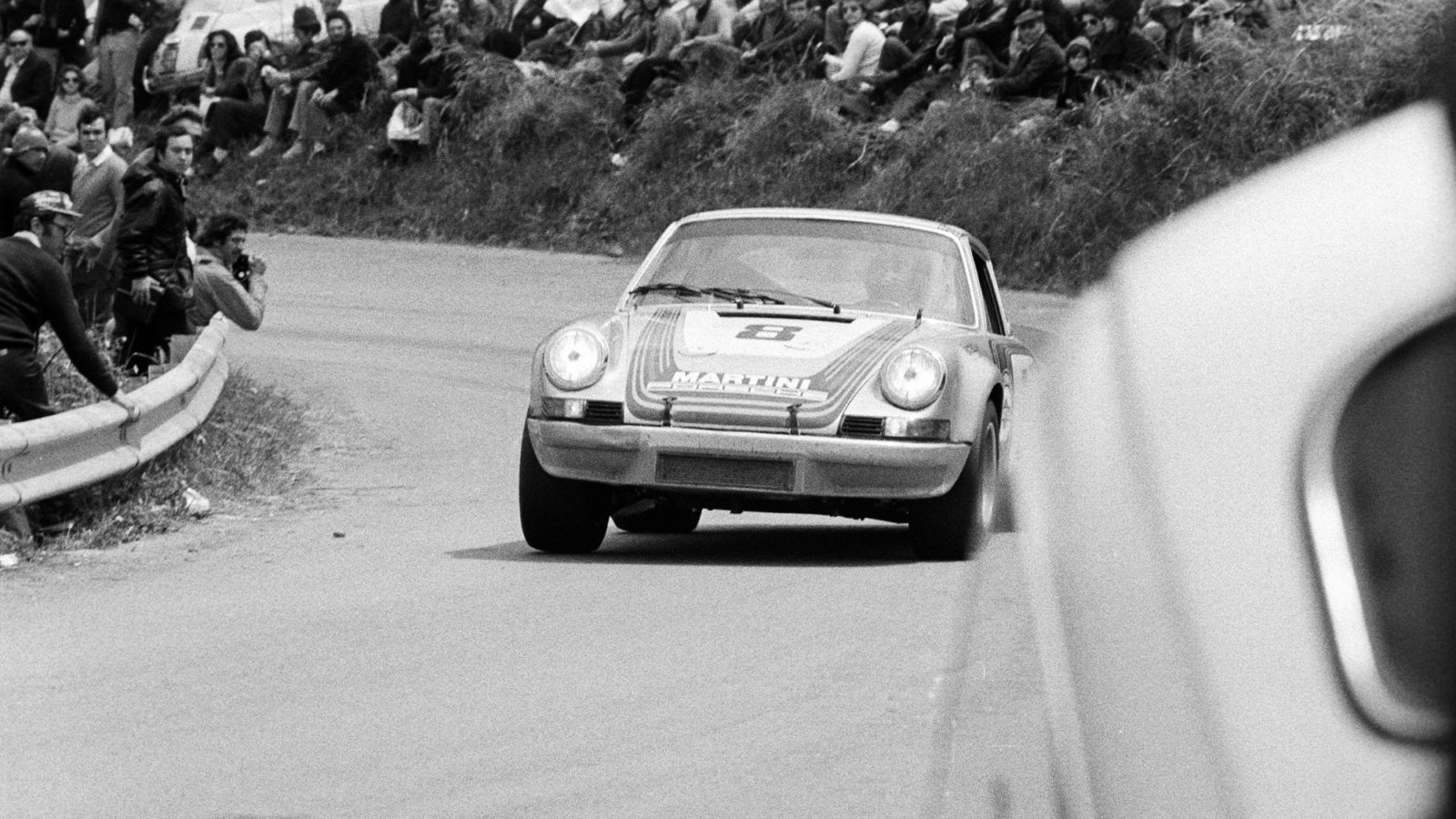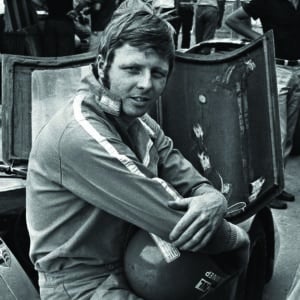Gijs van Lennep's against-the-odds win in the last of the Targa Florios
Gijs van Lennep on the pride he feels at beating the sports-prototypes in a Porsche 911 at the Targa Florio in 1973

Gijs van Lennep was not just the man who, with the late Herbie Müller, drove R6 to victory in the last proper Targa Florio, he was also instrumental in developing the RSR from scratch. Now 76, he recalls the car and his time in it with undisguised affection.
“We worked so hard with that car at Paul Ricard to get it right. Eat, drink, sleep and drive, that’s all we did. To test a new part I’d do three laps, then they’d take it off, I’d do three more laps, compare the times, put the part back on, three more laps and if the car was still quicker, we’d move onto the next one. It was not just the quickest way to develop a car, it was the best.

Van Lennep puts his speed behind the wheel of the RSR down to some very early training. “When I was 15 I learned how to slide a car until it was on full opposite lock without spinning, and then I learned how to correct it without it snapping the other way, which was the really difficult thing with those cars. So, you can say I was quite experienced with the way those cars behaved.”
The 1973 Targa Florio was his fourth crack at the Sicilian classic and his record speaks for itself: fourth in a private Porsche 908/2 behind three factory prototypes in 1970, second for Alfa in 1971 obeying team orders that said local boy Nino Vaccarella should win, and out on the first lap with a blown engine in 1972 after qualifying second for Alfa with Vic Elford.
Like Norbert Singer, the technical director, he was under no illusions about the likely outcome of the 1973 race. “I am a street racer and loved the Targa; but the Ferrari and Alfas were something like three minutes a lap quicker than us in qualifying.” His memory is good, the Ferrari 312PB of Arturo Merzario claiming pole some 3min 13sec quicker than R6’s best time. “Müller was a very good driver, really under-rated today, and quicker than me over one lap, though I was more consistent and probably faster over a race distance. But we were both very precise which is essential on the Targa Florio, where all you need to do is hit the kerb for your race to be over. And the Ferrari and Alfa drivers made mistakes that put them out of the race. One of the Ferraris didn’t even make the start.”
Indeed. With just four of the 11 laps of the race completed, R6 was out on its own. “We were young and strong but it was quite tiring. Each 72km lap had something like 700 turns and we drove in three- lap stints without any drinks bottle in the car. It gets quite hot in a closed racing car in Sicily in May. Müller did the first and third stints, I did the second and fourth, the last being two laps. I don’t remember anyone telling us to ease off once we were leading, but I expect we probably didn’t go quite as fast as we could have done, especially as the other RSR (driven by Leo Kinnunen and Claude Haldi) was not in a position to challenge us.”
And the car? “It was perfect from start to finish. Nothing went wrong with it at all. And when the tyres got hot, using the traction coming out of the tight corners, it was amazing.”
Where, then, did that win on the 1973 Targa Florio rank in a career that included a brace of Le Mans victories (he won again in 1976 with Jacky Ickx in a 936 prototype), two points finishes in four seasons in F1 and the 1972 European Formula 5000 Championship? He does not hesitate. “The greatest win has to be the 1971 Le Mans in the 917 [where he and Helmut Marko set a distance record that would take nearly 40 years to break], but in my heart it is always the Targa Florio. At the time, I didn’t know it would be the last to be held at the top level; for street racers it was the greatest challenge of them all, and I feel lucky and proud to have been the last person to win it.”
